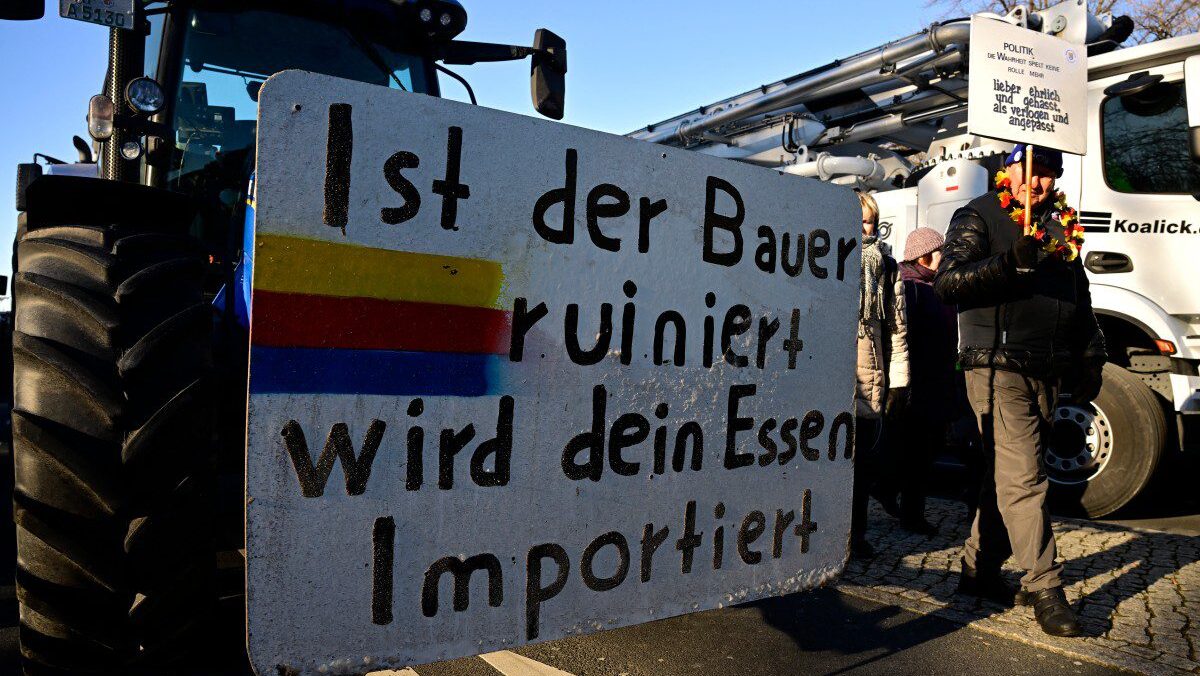
Photo: John MACDOUGALL / AFP
Protesting farmers are becoming a lightning rod for wider populist discontent in Germany. Following a day of direct action by German farmers Monday, a planned three-day train strike by German rail workers over pay and working conditions is expected to start Wednesday.
The walkout strike on the public rail network Deutsche Bahn (DB) was announced last week owing to management’s failure to keep pay in check with inflation. It is the first in a planned series of actions that DB, the country’s largest railway company, says will affect “long-distance, regional and S-Bahn services” which will be “massively disrupted nationwide.”
There are signs that dissent is spreading even within government ranks as the high-ranking Social Democratic MP Manuela Schwesig came out in favour of the farmers, warning that Germany risks its food security with the cuts.
Formerly the economic and political powerhouse of Europe, Germany has been struck by multiple crises in recent years, made worse by the poor handling by the country’s left-leaning coalition led by Olaf Scholz.
Tens of thousands of tractors were on the streets of various German cities, including Berlin, Monday morning protesting the Scholz government’s green austerity policies targeting subsidies on diesel fuel and farm equipment, something farmers see as a direct threat to their livelihoods.
🇩🇪 German farmer @AnthonyLeeLsvD tells me about the farmers’ uprising:
— Eva Vlaardingerbroek (@EvaVlaar) January 8, 2024
“We’re sick of the lies. We’ve been here for generations, we work 24/7, we’re the people who put food on your plates!
We are all united in getting rid of the politicians who are trying to get rid of us!” 🔥 pic.twitter.com/Z69cjvSmYF
Convoys up to 20 kilometres long were seen on the motorway outside the Rhineland city of Mainz and other cities Monday afternoon as tractors blocked key transport junctions to raise awareness of their cause, forcing the closure of many schools.
Alzey Richtung Mainz A63 pic.twitter.com/DlNrFqaxdM
— Chakuzza💙🇩🇪 (@Chakuzza39) January 8, 2024
Farming groups have announced that they will escalate their demonstrations in the coming weeks despite token concessions by the Scholz government to mitigate some of the subsidy cuts.
Speaking to Junge Freiheit beside the Brandenburg Gate in Berlin, 52-year-old trucker Alexander Jonas expressed his solidarity with the farmers saying that “the increase in tolls and diesel concerns us all” regardless of profession.
— Eva Vlaardingerbroek (@EvaVlaar) January 8, 2024
Monday’s events occurred without major incident, apart from minor scuffles with police in Dresden and three demonstrators reportedly injured in a traffic incident outside of Berlin. The right-wing populist AfD had a strong on-the-ground presence at the protests while German Green Minister Robert Habeck tried in vain to link the demonstrations with the ‘far right’—this despite widespread public support for the farmers from across German society.
Rechter Protestzug in Dresden hat gerade eine Polizeikette durchbrochen und läuft jetzt weiter in Richtung Neustadt. Viele Neonazis in den ersten Reihen. #dd0801 pic.twitter.com/Zl5GGIVrp6
— julius geiler (@glr_berlin) January 8, 2024
Smaller protests are scheduled to take place Tuesday in regional centres as farmers expect to escalate their actions from January 15th on. The demonstrations follow similar demonstrations in the Netherlands and Poland as the green agenda of the European elites clashes with the interests of food producers in the lead-up to next year’s EU elections.
